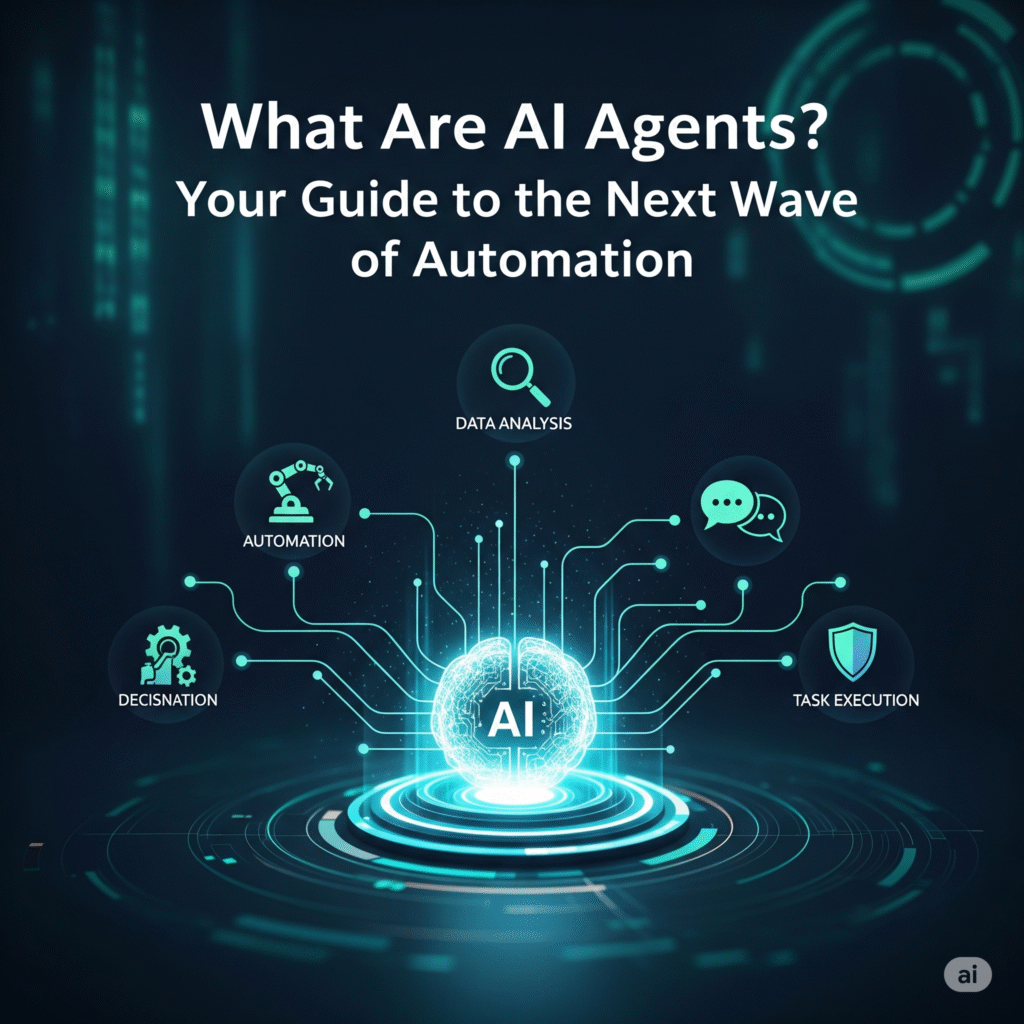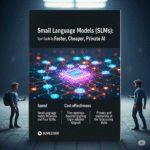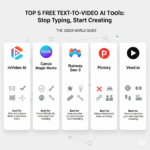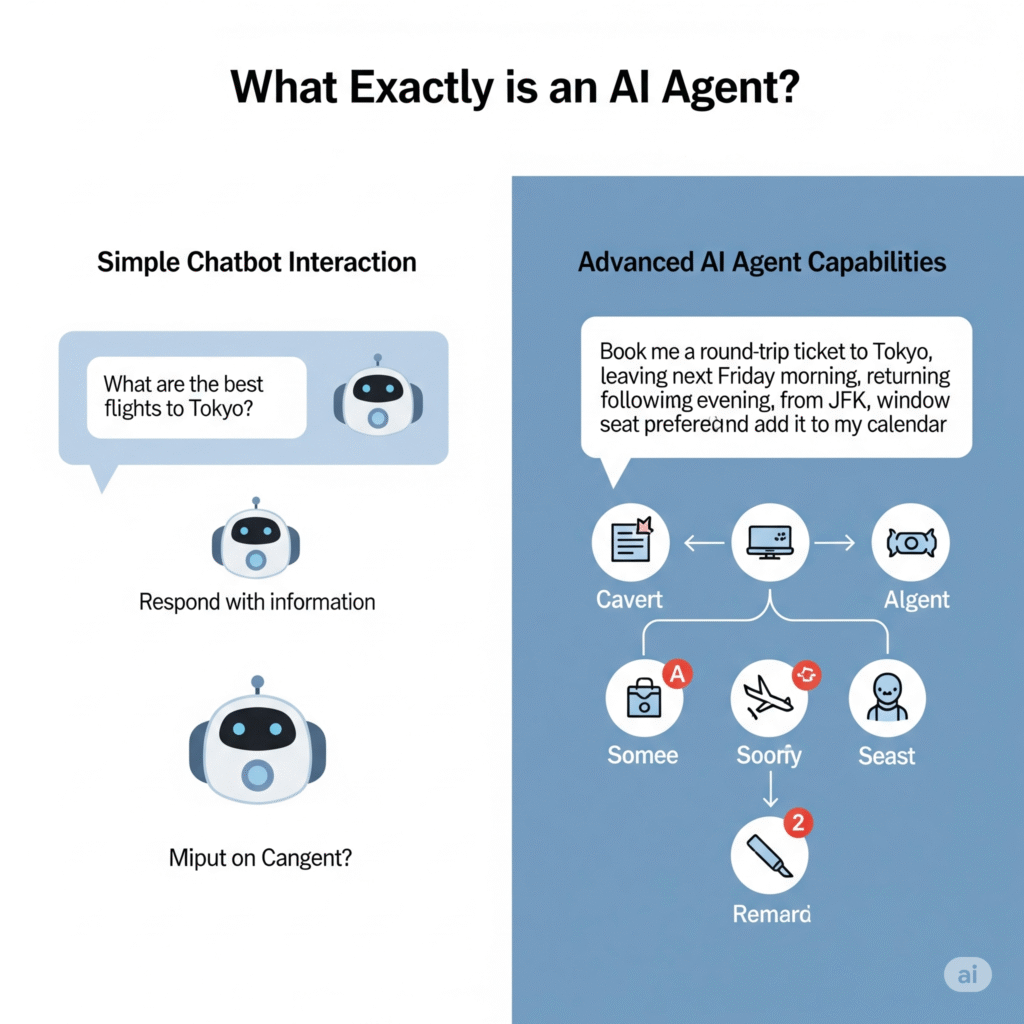
What Exactly is an AI Agent?
Think beyond today’s AI assistants. A chatbot can answer your questions based on the data it has. An AI Agent can take it a step further. It can understand a goal, create a plan, use different tools to execute that plan, and adapt if it hits a roadblock.
An AI Agent is an autonomous system that can perceive its environment, make decisions, and take actions to achieve specific goals.
It’s the difference between asking, “What are the best flights to Tokyo?” and saying, “Book me a round-trip ticket to Tokyo for next week, keeping the budget under ₹90,000, avoiding layovers longer than 3 hours, and add it to my calendar.”
The AI Agent would then:
- Understand the complex goal.
- Plan the steps: search multiple airline websites, compare prices, check layover times, access your calendar.
- Use Tools: Open a web browser, navigate to travel sites, use a calendar API.
- Execute: Complete the booking form with your saved details and confirm the flight.
- Report: Notify you that the task is complete and the trip is on your calendar.
This is not just automation; it’s autonomy.
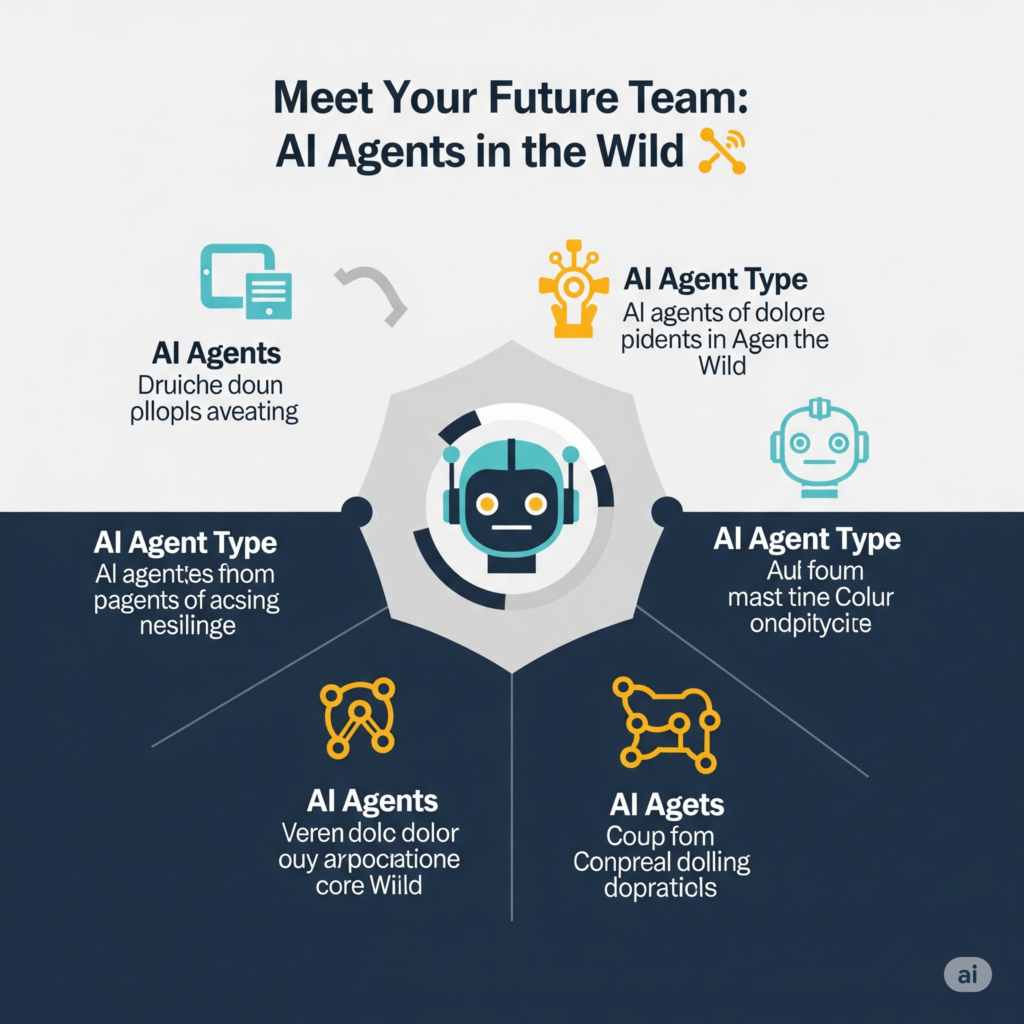
Meet Your Future Team: AI Agents in the Wild 🤖
AI Agents aren’t just one-trick ponies. They can be specialized for different roles, acting as tireless, efficient members of your team.
- The Autonomous Researcher: Imagine an agent tasked with “Find all recent market research on the growth of the EV market in India and create a summarized report with key statistics and competitor analysis by morning.” It would scour the web, access paid databases (with permission), analyze PDFs, and compile a neat document while you sleep.
- The Proactive Travel Coordinator: An agent that not only books your trips but also monitors for delays. If your flight is cancelled, it could automatically start searching for the next best alternative and present you with options before you even realise there’s a problem.
- The Software Engineer’s Partner: We’re already seeing the beginnings of this with agents like Devin AI. You can give it a software development task, and it will write the code, test it, find and fix the bugs, and deploy the application. It’s like having a junior developer who never needs a coffee break.
- The Savvy Operations Manager: In a business setting, an agent could monitor inventory levels, automatically re-order supplies from the cheapest vendor when stock is low, schedule maintenance for equipment, and handle routine administrative tasks, freeing up human employees for more strategic work.
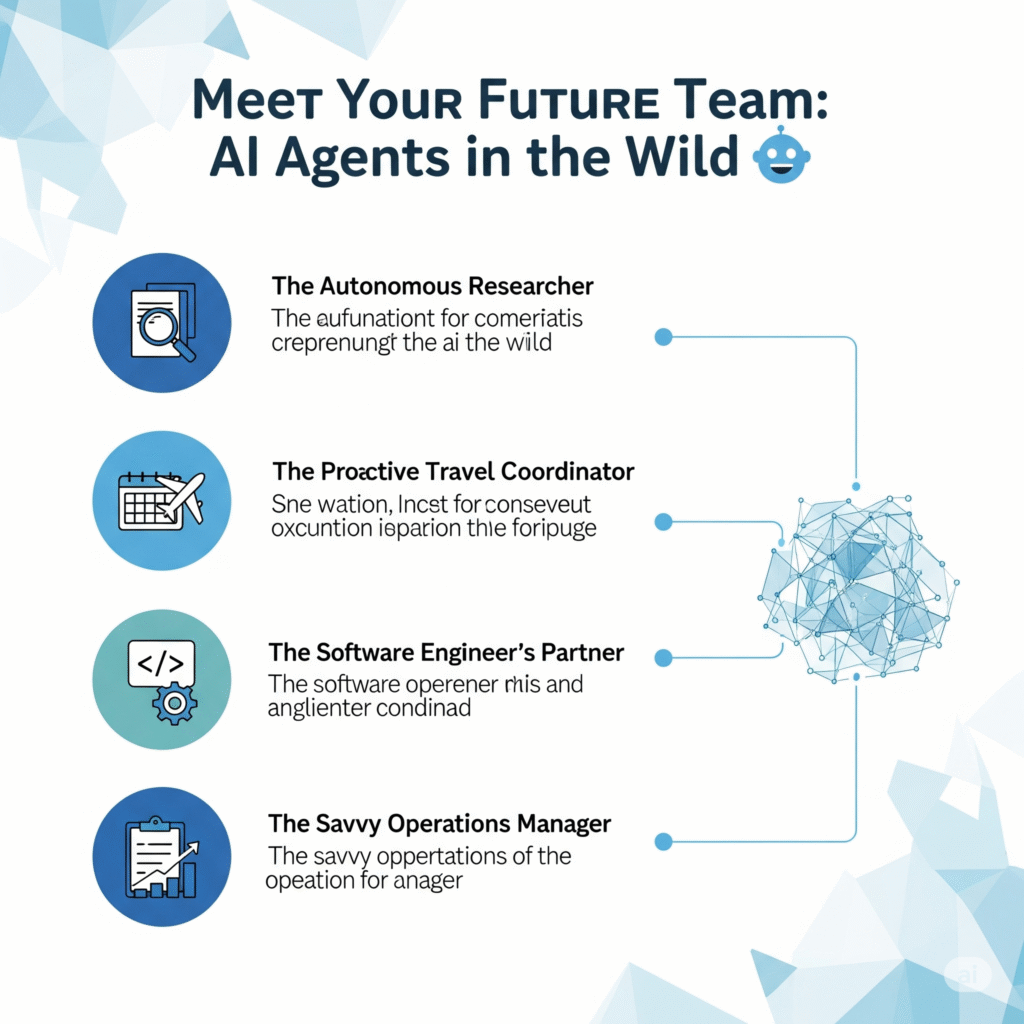
Are We Ready for Autonomous Employees?
The rise of AI agents brings up valid questions about control, security, and jobs. Handing over autonomy requires trust. We’ll need robust systems for:
- Human Oversight: The ability to monitor an agent’s actions and intervene when necessary.
- Security: Ensuring agents can’t misuse the tools and access they are given.
- Ethics: Programming agents with clear ethical boundaries to make responsible decisions.
The goal isn’t to replace humans, but to augment them. By delegating the tedious, multi-step digital tasks to AI agents, we can free up human creativity, strategic thinking, and emotional intelligence for a higher level of work.
Your first autonomous employee won’t be a robot walking into the office. It will be a piece of software you can delegate complex digital work to, transforming your productivity and changing the very nature of the modern workplace. The future of work isn’t just about doing things faster; it’s about doing less and achieving more.
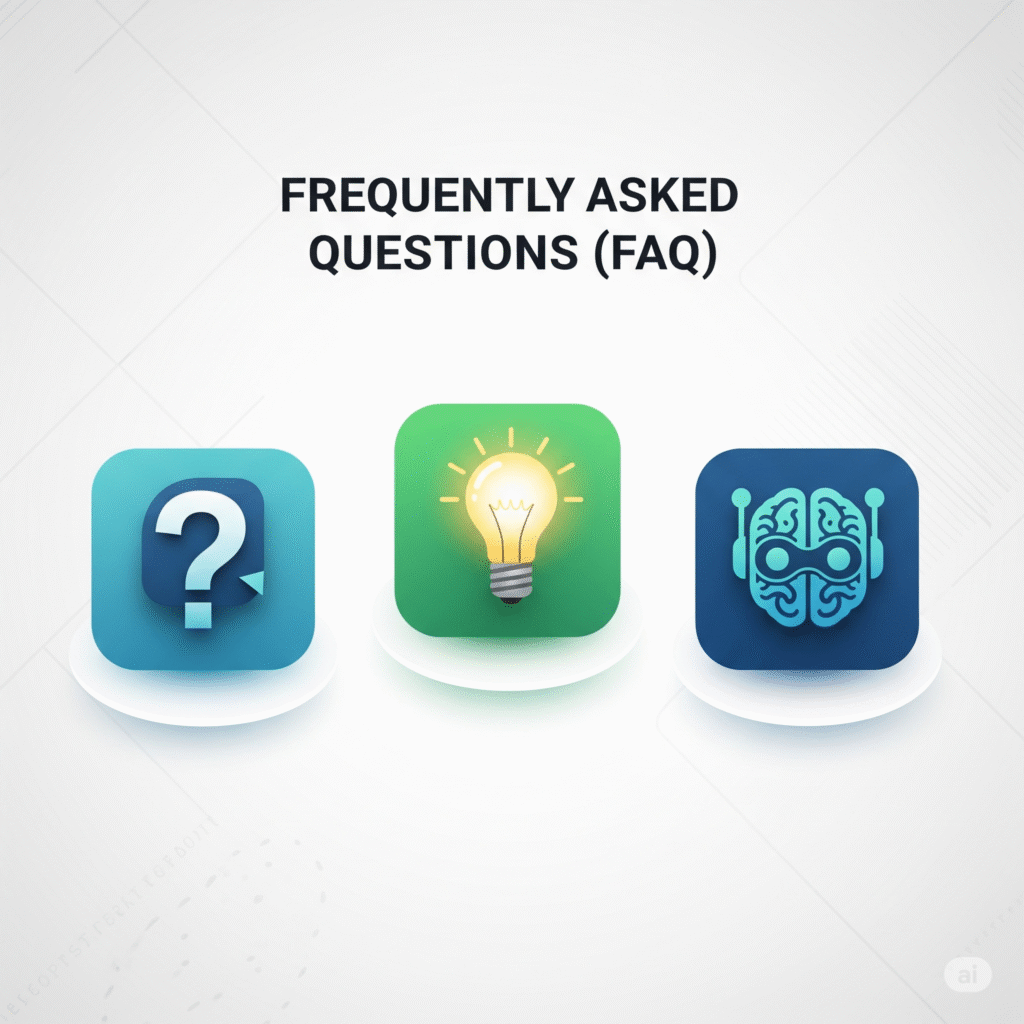
Frequently Asked Questions (FAQ)
Q1: What is the main difference between an AI agent and a chatbot like ChatGPT?
A chatbot is primarily conversational; it responds to your prompts with information. An AI agent is action-oriented; it can take that information and use tools (like apps, websites, or APIs) to perform tasks in the digital world to achieve a goal. Think of it as “Chat vs. Act.”
Q2: Are AI agents available to use right now?
Yes, in their early stages. We are seeing the first wave of agent-like capabilities being integrated into existing platforms and as standalone projects like Devin. Fully autonomous, general-purpose agents for the average consumer are still in development but are advancing at an incredible pace. Expect to see them become much more common over the next 12-24 months.
Q3: Will AI agents take my job?
They will change jobs, not necessarily eliminate them. AI agents are poised to automate the tedious, repetitive digital tasks within many roles. This will shift the human focus towards strategy, creativity, and managing these agents. The job of the future might look more like a “manager of AI agents.”
Q4: How do I ensure an AI agent acts responsibly?
This is a critical area of development. Responsible AI agent design involves creating systems with clear “guardrails” or rules, strong security protocols to prevent unauthorized actions, transparency in their decision-making process, and always having a “human-in-the-loop” for final approval on critical tasks.
